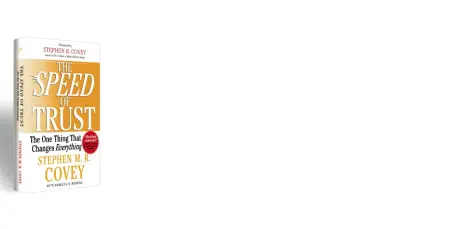Keep Commitments is the 12th trust behavior listed in The Speed of Trust by Stephen M.R. Covey. Covey calls this trust behavior the “Big Kahuna” of them all. He believes this is the quickest way to build trust in any relationship. Let’s go over why this trust behavior is so important and how you can live it out well.
Saying Yes or No
Even as children, we all learn the value of promises. I am guessing you can remember the feeling of� deep disappointment when an adult did not keep their word, but also the happiness that stemmed from their word being kept.
This is a good thing to remember in order for you to understand the power of commitments. If you have any doubt in your mind that you can keep a commitment, do not make it! The person on the other end will be much happier with a “maybe” or even “no” than a canceled commitment. Sometimes this lack of commitment could cause a bit of frustration or disappointment on the front end, but it’s much better than destroying your standing as a trustworthy person in the long run. Covey calls this courageous and wise, and I agree.
“Although Keep Commitments is one of those behaviors that seem obvious and just plain common sense, as the expression goes, ‘Common sense is not always common practice.’ And the impact on trust is devastating.”
- Stephen M.R. Covey in The Speed of Trust
The Consequences of Unkept Commitments
I once worked for a company that needed staffing 24 hours a day. When I interviewed for the position, my future boss assured me that I would keep a Monday through Friday schedule, even if it meant working earlier hours than a normal 9 to 5. I was overjoyed to get this commitment from them and willing to work at unique times of the day in order to have weekends off. So, I excitedly joined the team.
However, only six months later I was told my schedule would change and I would be working on weekends. This manager tried to hype me up by explaining I would get to sleep later and have a more normal schedule during the workweek. But that was not what we agreed on. The commitment was not kept, the trust was broken, and I left the company shortly after the experience.
This story shows the epic importance of keeping your word. If this person had been honest with me that they could not promise what I asked for, I honestly would have still taken the job. I was green in the industry and willing to learn despite the terrible working hours.
But, the feeling of not being able to trust the person who made major decisions on my behalf really stuck with me. I did not want to be subjected to their changing with the wind decisions that drastically affected my life. Once trust is broken like this, it's incredibly hard to get back.
An unkept commitment can ruin your reputation in someone else's eyes. This is why Covey puts so much importance on it! But if you remember its importance every time you make a commitment and see it through, you can gain trust rapidly.
I see this lived out every day at Improving. It is amazing to watch people with very busy schedules make time to work with me on projects of all sizes because they made a commitment. And, it's also been a pleasure to hear people tell me that they’ll think about a proposition or even say the word “no”. I am able to trust them through their transparency (another wonderful trust behavior) and understand they are being honest with what they can handle. These traits can help a team feel stronger and build respect for each other.
If you would like to learn more about how we prioritize trust at Improving, reach out to us.







